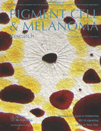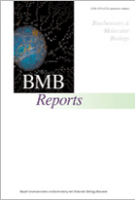
Pigment Cell & Melanoma Research
Scope & Guideline
Illuminating Insights into Pigment Cells and Melanoma.
Introduction
Aims and Scopes
- Pigmentation Biology:
Research exploring the mechanisms of pigmentation, including the genetic, biochemical, and environmental factors that influence melanin production and distribution in various organisms. - Melanoma Pathogenesis and Progression:
Investigations into the molecular and cellular changes that lead to melanoma development, progression, and metastasis, including studies on genetic mutations, tumor microenvironment, and immune evasion. - Therapeutic Strategies and Clinical Outcomes:
Exploration of novel treatment approaches for melanoma, including immunotherapy, targeted therapies, and combination treatments, with a focus on clinical efficacy and patient outcomes. - Diagnostic and Prognostic Biomarkers:
Identification and validation of biomarkers for early detection, prognosis, and treatment response in melanoma patients, enhancing personalized medicine approaches. - Pigmentary Disorders and Related Conditions:
Studies on various pigmentary disorders, including vitiligo and albinism, their pathophysiology, and therapeutic interventions.
Trending and Emerging
- Genomic and Molecular Characterization of Melanoma:
Recent publications increasingly focus on the genomic landscape of melanoma, exploring genetic mutations, epigenetic modifications, and their implications for treatment, which is essential for precision medicine. - Immunotherapy and Immune Microenvironment:
Research on the role of the immune system in melanoma, particularly studies involving immunotherapy responses, immune checkpoint inhibitors, and tumor microenvironment interactions, has gained significant traction. - Innovative Therapeutic Approaches:
There is a growing interest in novel therapeutic strategies, including combination therapies and the use of biomarkers to predict treatment responses, highlighting the shift towards personalized medicine. - Pigment Cell Biology and Its Clinical Relevance:
Research that connects basic pigment cell biology with clinical implications, particularly in understanding skin cancer and pigment-related disorders, is becoming increasingly prominent. - Single-Cell and Multi-Omics Approaches:
Emerging methodologies, including single-cell RNA sequencing and multi-omics analyses, are being adopted to gain deeper insights into the heterogeneity of melanoma and its microenvironment.
Declining or Waning
- Basic Animal Models of Melanoma:
The use of traditional animal models for melanoma research, such as xenografts or older transgenic models, has seen a decrease as newer technologies and advanced models, including humanized mice and organoids, gain traction. - Epidemiological Studies without Molecular Insights:
Epidemiological research focusing solely on incidence and survival rates without integrating molecular or genetic analyses has become less frequent, as there is a shift towards studies that combine clinical data with molecular profiling. - Historical Reviews of Melanoma Treatments:
While historical perspectives on melanoma treatments were once prevalent, there is a waning interest in this area as the focus shifts towards cutting-edge therapies and novel treatment strategies.
Similar Journals

MOLECULAR NEUROBIOLOGY
Showcasing Cutting-edge Research in NeurobiologyWelcome to Molecular Neurobiology, the premier journal dedicated to the exploration of the molecular mechanisms underlying nervous system function and pathophysiology. Published by Springer, this journal provides an essential platform for disseminating high-quality research in the rapidly evolving fields of Cellular and Molecular Neuroscience and Neurology, boasting an impressive impact factor that reflects its esteemed position within the academic community. With its ranking in the Q1 and Q2 quartiles for various neuroscience categories, Molecular Neurobiology stands at the forefront of groundbreaking discoveries, showcasing innovative studies that bridge basic science and clinical application. Researchers and professionals are invited to contribute to its rich portfolio, which spans from fundamental insights into cellular processes to advanced therapeutic strategies. Although Molecular Neurobiology does not operate as an Open Access journal, its influential body of work remains accessible through institutional and personal subscriptions. As we converge from 1987 to 2024, we continue to aim for excellence, seeking to catalyze progress in understanding neurological diseases and enhance the scientific dialogue within the neuroscience community.

MELANOMA RESEARCH
Advancing the Frontiers of Melanoma Research.MELANOMA RESEARCH is a leading journal dedicated to the exploration and dissemination of innovative research in the field of melanoma and skin cancers. Published by Lippincott Williams & Wilkins, this journal has been a pivotal resource since its inception in 1991, continually evolving to encompass significant advancements within dermatology and oncology through 2024. With a focus on high-quality, peer-reviewed articles, it offers critical insights into cellular mechanisms, treatment strategies, and emerging therapies pertinent to melanoma. It currently holds a Q3 category in Cancer Research and a Q2 category in Dermatology, while also ranking within the 65th percentile for Medicine Dermatology according to Scopus. Although not an open-access journal, MELANOMA RESEARCH ensures accessibility through various institutional subscriptions, making it an invaluable asset for researchers, professionals, and students engaged in pioneering melanoma research.

MUTATION RESEARCH-FUNDAMENTAL AND MOLECULAR MECHANISMS OF MUTAGENESIS
Decoding the Impact of Mutagenesis on LifeMUTATION RESEARCH - FUNDAMENTAL AND MOLECULAR MECHANISMS OF MUTAGENESIS is a premier peer-reviewed journal published by Elsevier, dedicated to advancing the understanding of mutagenesis and its broader implications in genetics, health, and molecular biology. With an impressive converged publication history from 1964 to 2024, this journal provides a vital platform for the dissemination of high-quality research findings, contributing significantly to the field's knowledge base. Indexed in Scopus, it holds a Category Quartile ranking of Q3 in Genetics and Q2 in Health, Toxicology, and Mutagenesis, further underscoring its relevance and stature. Access options are available, catering to a diverse audience of researchers, professionals, and students eager to stay informed on the latest developments in mutagenesis research. By bridging experimental studies and theoretical frameworks, the journal plays a crucial role in exploring the fundamental mechanisms underlying genetic mutations and their effects on human health and the environment.

Advances in Cancer Biology-Metastasis
Fostering Collaboration for Cancer Breakthroughs.Advances in Cancer Biology-Metastasis is an emerging journal published by Elsevier, aimed at advancing our understanding of the complexities of cancer biology, with a specific focus on the mechanisms and pathways related to metastasis. With an E-ISSN of 2667-3940, this journal offers a platform for researchers, professionals, and students in the fields of Cancer Research and Cell Biology to disseminate innovative findings and discuss novel therapeutic approaches. Though currently classified in the Q4 quartile across both Cancer Research and Cell Biology categories, the journal aspires to enhance its impact through rigorous peer review and high-quality publication. Positioned to cover the years from 2021 to 2024, it seeks to bridge gaps in foundational knowledge and promote collaborative research efforts that could pivot the current understanding of cancer metastasis. Researchers are encouraged to take advantage of this platform to advocate for advancements in cancer biology, making significant contributions that can influence both academic and clinical practices.

MOLECULAR CARCINOGENESIS
Exploring the Frontiers of Cancer ResearchMOLECULAR CARCINOGENESIS is a prestigious academic journal published by Wiley, dedicated to advancing the understanding of the molecular basis of cancer. Established in 1988, this journal serves as a vital resource for researchers and professionals in the fields of cancer research and molecular biology. With an impressive impact factor reflecting its significance in the Q2 category for both Cancer Research and Molecular Biology, it stands out for its high-quality, peer-reviewed articles that explore innovative research, novel findings, and emerging trends in carcinogenesis. Although the journal currently does not offer open access options, it remains accessible to the academic community through numerous institutional subscriptions. Positioned in the United States and contributing to the global discourse on cancer research, MOLECULAR CARCINOGENESIS is an essential publication for anyone engaged in the study of cancer at the molecular level.

EXPERT REVIEWS IN MOLECULAR MEDICINE
Cutting-edge Reviews from Leading ExpertsEXPERT REVIEWS IN MOLECULAR MEDICINE, published by Cambridge University Press, stands at the forefront of research in the fields of Molecular Biology and Molecular Medicine. With an impressive impact factor reflecting its Q1 status in both relevant categories, this journal serves as an essential platform for disseminating cutting-edge reviews and critical assessments that are vital for advancing our understanding of molecular mechanisms in health and disease. Established in 1997 and continuously evolving until 2024, it features contributions from leading experts that highlight emerging trends and innovative methodologies. Researchers, professionals, and students are encouraged to engage with the content, benefiting from the journal’s rigorous peer-review process and its commitment to academic excellence, making it a valuable resource within the scientific community.

BMB Reports
Elevating Research, Enhancing VisibilityBMB Reports is a distinguished open-access journal published by the Korean Society of Biochemistry & Molecular Biology since 2008, making significant contributions to the fields of biochemistry, molecular biology, and medicine. With a current impact factor that positions it in the Q2 category for Biochemistry and Q1 for Miscellaneous Medicine, this journal supports a wide dissemination of high-quality research findings, fostering robust dialogue among researchers, professionals, and students alike. Based in Seoul, South Korea, BMB Reports aims to publish innovative studies that advance our understanding of biochemical and molecular processes, thus shaping the future of health and medicine. The journal's commitment to open access enhances the visibility of its articles, allowing for greater accessibility and engagement in the scientific community. With notable rankings in both the Biochemistry and Molecular Biology categories, BMB Reports stands as a vital resource for those seeking to stay at the forefront of research in these rapidly evolving disciplines.

CANCER CELL
Where Excellence Meets Cancer ResearchCancer Cell, published by Cell Press, represents a pinnacle of research in the fields of cancer research, cell biology, and oncology. With an impressive Impact Factor and ranking as Q1 in prestigious categories for both 2023 and previous years, this journal stands out as a vital resource for professionals and scholars dedicated to understanding the molecular underpinnings of cancer. Operating from Cambridge, MA, Cancer Cell has been an essential platform for innovative studies since its inception in 2002. Although it is not an Open Access journal, its rigorous peer-review process ensures that only the highest quality research is disseminated to the scientific community. Readers can expect to find a wealth of knowledge ranging from cutting-edge therapies to insights into tumor biology, thereby contributing significantly to the advancement of oncology. With rankings placing it among the top echelons of related fields—#2 in Cancer Research and #6 in Oncology—Cancer Cell is an indispensable reference for anyone committed to the fight against cancer.

CELLULAR & MOLECULAR BIOLOGY LETTERS
Bridging Gaps in Cellular Research for a Global AudienceCELLULAR & MOLECULAR BIOLOGY LETTERS, published by BMC, is a premier open-access journal dedicated to disseminating high-quality research in the fields of Biochemistry, Cell Biology, and Molecular Biology. Established in 1996, the journal has emerged as a leader in its domain, boasting an impressive Q1 ranking across three critical categories as of 2023, reflecting its significant impact within the scientific community. With an ISSN of 1425-8153 and an E-ISSN of 1689-1392, it offers accessible research findings to a global audience, having been open access since 2013. Situated in the United Kingdom, at CAMPUS, 4 CRINAN ST, LONDON N1 9XW, the journal continues to serve as a vital resource for researchers, professionals, and students, contributing to advancements in the understanding of cellular and molecular processes. By providing a platform for original research, reviews, and short communications, CELLULAR & MOLECULAR BIOLOGY LETTERS plays a crucial role in fostering dialogue and collaboration within the scientific community.

CELL BIOLOGY INTERNATIONAL
Championing Excellence in Cell Biology ResearchCELL BIOLOGY INTERNATIONAL is a prestigious academic journal dedicated to the rapidly evolving field of cell biology, publishing high-quality research aimed at understanding cellular processes and their implications in various biological contexts. Published by Wiley, this journal has established its relevance with an H-Index that reflects its robust citation impact and a commendable Scopus Rank of #111 out of 285 in the field of Biochemistry, Genetics, and Molecular Biology, positioning it in the 61st percentile. Although it operates under a traditional subscription model, its influential insights are crucial for researchers, professionals, and students alike who are seeking cutting-edge developments in cellular mechanisms and their applications in medicine. The journal spans contributions dating back to 1993, providing a rich archive of knowledge that continues to shape the discourse within the scientific community. With a strong category ranking of Q3 in Cell Biology and Q2 in Medicine (miscellaneous) as of 2023, CELL BIOLOGY INTERNATIONAL stands as a reliable platform for disseminating transformative science in the cellular domain.